The majority of homeowners find the decision to install a fireplace in their home an easy one to make. Unfortunately, finding the right type of fireplace for their home becomes a difficult feat. If you are in this dilemma, worry no further because we are here to assist.
Contrary to what most people might think, you do not need to seek professional assistance to discern the best type of fireplace for your space. By simply having an idea of the conditions, you want the fireplace to match and doing some digging on the internet, you will be able to identify the type of fireplace that ticks all the boxes for you.
In all honesty, the battle for the best fireplace is a two-horse race between an electric fireplace and a gas fireplace, the better one of the two depends on you.
Now, let us walk through a detailed comparison between electric and gas fireplaces to help you decide which of the two fireplaces tickles your fancy. But first, you need to understand what electric fireplaces and gas fireplaces are, and the different types they come in.
Here is a brief description:
Electric fireplaces
What is an electric fireplace?
In simple terms, an electric fireplace is a heating element that imitates traditional fireplaces by heating up a room but contrastingly runs with a ‘fake flame’ on screen. Moreover, it does not come attached with the hassle of venting, professional installation, and numerous post-installation maintenance services tied to traditional fireplaces.
Electric fireplaces operate by:
- Pulling in hot air.
- An internal heating coil then heats up the air.
- Finally, a blower forces the warm air out of the room.
Types of electric fireplace
Unlike gas fireplaces, which we will talk about next, electric fireplaces come in a single type but with different varieties.
The varieties are:
- Built-in electric fireplaces
- Wall-mount electric fireplaces
- V stand/ mantel electric fireplaces
- Electric fireplace inserts
Gas fireplaces
What is a gas fireplace?
A gas fireplace is similar to a wood-burning fireplace but uses gas (such as propane) as fuel to create heat.
Types of gas fireplaces
- Direct vent gas fireplaces - These are gas fireplaces designed with a sealed glass front and vented with a special two-wall vent system making them the best option for those with aesthetics and moderate efficiency in mind
- Vent-free gas fireplaces – These are gas fireplaces that are not vented to the outside making them have the highest heating efficiency
- B-vent gas fireplaces – These are gas fireplaces that have a vertical vent and offer the aesthetic appeal of traditional open-front fireplaces.
Now that you have a basic understanding of electric and Gas fireplaces. We have proceeded to include a detailed comparison of the two in different aspects. These aspects are essential to help you decipher the better fireplace of the two.
- Ease of Installation
Certainly, both electric and gas fireplaces are easy to install when compared to wood-burning fireplaces. If the comparison is between gas fireplaces and electric ones, the latter is by far the easiest to install.
To install an electric fireplace you need to simply, plug its cord into a power outlet, and you are good to go. But in some electric fireplaces, such as linear scale wall-mounted ones, you will need additional work like hardwiring. However, even with the additional installation services, it will still not be a match for the work needed to install gas fireplaces.
Speaking of gas fireplaces, it involves numerous professional work to install them. It typically involves:
- cutting out the area for the fireplace to be installed
- running gas lines to the fireplace if your house lacks one
- external venting
- Installing a mantel.
On the contrary, you could run the gas installation as a DIY project but remember to involve a professional when dealing with the gas lines in order to prevent any catastrophe in the future.
- Cost
Cost is certainly an important factor when looking at fireplace options. Generally, gas fireplaces cost more to acquire, install and run compared to their counterparts.
With gas fireplaces, you will incur regular maintenance costs and annual inspection fees, which are none existent with electric fireplaces. Additionally, the fuel gas required to run a gas fireplace is costlier than the electricity used to run an electric fireplace.
To paint a clear picture in your mind we will break down the costs incurred:
Operating cost
When it comes to operating costs, the amount incurred for gas fireplaces depends on a number of things:
- Unit size
- Unit model
- Cost of propane, natural gas, or vent-less gas logs in your area
While the costs involved in running an electric fireplace only depend on the cost of electricity.
A useful tip when comparing the cost of running an electric fireplace and a gas fireplace is ‘Focus on BTUs (British Thermal Units) released by the unit’
The general principle is that the more BTUs released by a unit the higher the cost of running it. With that in mind, gas fireplaces tend to release more BTUs compared to electric fireplaces clearly making them pricier to run.
Installation cost
Having previously gone through the process of installing gas and electric fireplaces in this article, you know how much work goes into installing a gas fireplace. The high cost of acquisition and numerous amount of work attached to installing a gas fireplace compared to an electric one directly translates to a higher cost of installation
Maintenance cost
Electric fireplaces require a minimal amount of maintenance work. On the other hand, with gas fireplaces, you have to cater for regular maintenance services and safety inspection fees.
After adding up the different costs incurred by both fireplaces it's clear as day that gas fireplaces are costly in every aspect when compared to electric ones.
- Maintenance
The design of modern fireplaces ensures that both electric fireplaces and gas fireplaces require a minimum amount of maintenance.
All that is required to maintain an electric fireplace is occasionally replacing burnt-out bulbs/ faulty LEDs, dusting off the unit, and checking for damaged wires.
While for gas fireplaces, there is annual maintenance work required involving inspecting and cleaning the vents and in addition a certified professional checking the gas valves for leaks.
- Aesthetics
Electric fireplaces and gas fireplaces come in an array of designs, models, and brands. That accompanied by the additional customization options available for both fireplaces guarantees that they instantly improve the ambiance and aesthetics of any space they are installed.
Often, gas fireplaces are similar to campfires and wood-burning fireplaces because they heat up a room with a real flame, hence creating an amazing ambiance.
In contrast, electric fireplaces do not use an actual flame but instead use a realistic-looking imitation flame running on an LED screen with fire sounds. The upside of the ‘fake flame’ on electric fireplaces is that with a touch of a button you can have the flame running on screen with the heating component turned off. This comes in handy when you want to create a great ambiance in a room/space even on hot days when the heating is not required
The most aesthetically appealing between electric fireplaces and gas fireplaces depends on your preference for real flames
- Energy efficiency.
Electric fireplaces do not waste any electricity input; they use up all the electricity to create heat and run the flame. Additionally, they heat up a room without a real flame and therefore have zero emissions. This allows them to operate without a vent. Hence, they do not lose any heat to the outside and are therefore completely energy efficient.
On the other hand, except for ventless gas fireplaces, other gas fireplaces require venting and therefore end up losing heat to the outdoors making them less efficient.
Ventless gas fireplaces are more efficient than other types of fireplaces. This is because they burn at optimum temperatures to minimize moisture and carbon monoxide production. But even ventless gas fireplaces are at fault since they convert energy to heat at an efficiency of 70% to 90%. Still not a match for electric fireplaces.
- Eco friendly
Electric fireplaces are clean burning since they operate without a fire. As a result, they do not release any pollutants into the environment. In addition, they use electricity, which is a renewable source of energy, to run.
In contrast, gas fireplaces could be polluting or not polluting to the environment depending on their type. However, even with non-polluting gas fireplaces they still can be termed as not eco-friendly since they use up a natural resource (gas) that takes ages to regenerate.
- Life expectancy.
Electric fireplaces and gas fireplaces have an almost similar lifespan. But the lifespan alters depending on the model and brand you settle for.
Generally, both electric fireplaces and gas fireplaces last for an average of 15-20 years. In hindsight, you can add a couple of years to the lifespan of your unit with good maintenance and upkeep,
A useful tip to gauge the expected lifespan of a fireplace: ‘check the warranty that comes with it at the time of purchase. The rule of thumb is that the longer the warranty the higher the expected lifespan of the fireplace.
- Noise
Noise can be present in both electric and gas fireplaces based on the model you own. For instance, Electric fireplaces that use a space heater have an internal blower that gives off a noisy sound when the fireplace is running. The same occurs with newer model gas fireplaces that have a blower incorporated in them.
However, electric fireplaces that heat up a room using infrared heaters and older models of gas fireplaces, without an incorporated blower, operate silently.
- Heating
Both electric and gas fireplaces score highly in the heating department since the optimum amount of heating is subjective based on the room size.
Gas fireplaces release more units of heat when compared to electric fireplaces. This makes gas fireplaces essentially suitable to heat up large spaces but not small spaces since there is a chance a smaller room will overheat.
Alternatively, electric fireplaces release lower heat units compared to gas fireplaces, which makes them a perfect fit for small spaces but becomes deficient in larger spaces.
- Increase the resale value
Installing an electric or gas fireplace in your house will automatically increase the resale value of your property. But in all honesty, gas fireplaces take the edge here.
Gas fireplaces are overall better in terms of heating and their real flame when running makes them more appealing to potential homeowners. While electric fireplaces are less popular since they are movable fixtures, and hence have a lower stand-alone value when compared to gas fireplaces.
- Operation outage
Gas fireplaces rely on gas to run and are therefore less prone to the occurrence of outages during operation. The only issue with gas fireplaces constantly running is that loads of energy go to waste.
Electric fireplaces on the other hand operate using electricity meaning when the lights are out the heater is out. If you live in an area with reliable electricity or own a backup generator that becomes a non-issue.
- Convenience in use
Electric fireplaces are by far the most convenient to use among all types of fireplaces. With the remote control of an electric fireplace, you can:
- Switch the fireplace on or off
- Increase or reduce the level of heat
- Switch off the heating element and have the flame run on screen only.
While gas fireplaces are either difficult or convenient to use, based on the model and type you have. Older versions of gas fireplaces, which are lit up using a standing pilot ignition system, are relatively difficult to operate before you light it up. However, modern gas fireplaces with electric ignition systems with wall switches and remote controls are similarly as easy to operate as electric fireplaces.
- Fireplace safety
Electric fireplaces and gas fireplaces both produce heat. And it is quite clear anything that produces heat comes with imminent danger. The level of danger however differs in electric and gas fireplaces
Electric fireplace safety
Electric fireplaces are by far the safer option of the two. This is because they do not have a real flame and only pose a threat:
- when they have a damaged wire
- When their vent, which emits warm air into the room, becomes hot.
The lack of a real flame also ensures that they do not have harmful emissions such as carbon monoxide.
Gas fireplace safety
Gas fireplaces have a higher level of danger since:
- You run the risk of gas leakages, which have proved to be a catastrophe,
- The front glass overheats and can cause burns on contact
- Moisture tends to build up in your house
- Carbon monoxide inhalation if the fireplace is faulty or not properly installed and maintained
Luckily, there are measures you can take to improve the safety of fireplaces, these include:
- Install carbon monoxide detector
Although most modern houses come equipped with carbon monoxide and smoke detectors, some old models lack this important feature. If you happen to live in a space with none, be sure to invest in one. This is particularly handy if you have a gas fireplace with open flames. The detector also comes with an additional smoke detector alarm that eliminates the chance of carbon monoxide poisoning occurring in your home.
- Install a fire screen/ gate
This will prevent your pets, children, or anyone from getting a burn after coming into direct contact with the hot front glass in a gas fireplace or hot vent in an electric fireplace.
- Install heatproof glass doors
This will ensure the fire remains contained within the box, therefore, preventing any hazards. The downside to this is that it reduces the heating efficiency in gas fireplaces, but that is a worthy sacrifice.
- Install a blower
This is important in gas fireplaces as it improves efficiency and immensely reduces the possibility of the front glass overheating
Conclusion.
The battle between electric fireplaces and gas fireplaces is a never-ending one, some will say electric fireplaces are the best while others will disagree and side with gas fireplaces. The truth, however, is that the best fireplace between electric fireplaces and gas fireplaces depends on your preference and how you want to use it.
Keeping that in mind, choose an electric fireplace if you:
- Require heating for a small space only
- Have safety as a major priority
- Have pets or kids how could easily come into contact with the fireplace
- Want to run a DIY project
- Do not mind not having a real flame in the fireplace
- Lack of existing gas lines on your property
- Want a fireplace that you can move from one room to another or from property to property
And opt for a gas fireplace if;
- Want a fireplace with the aesthetics of a real flame
- Reside in a neighborhood with a high cost of electricity
- Already have preexisting gas lines in your property
- Require heating for large spaces



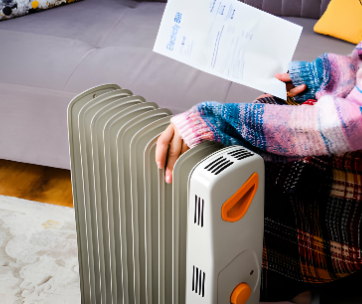
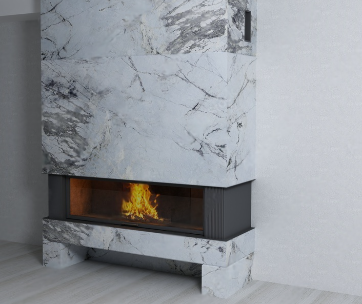
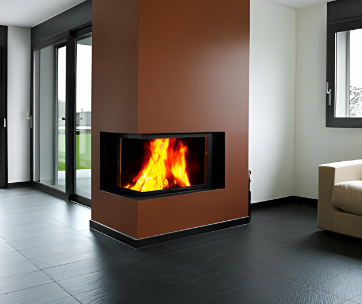

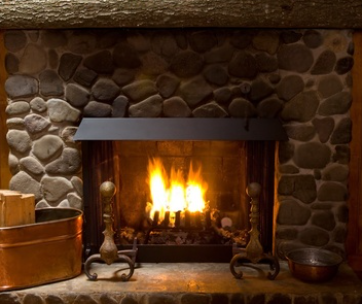


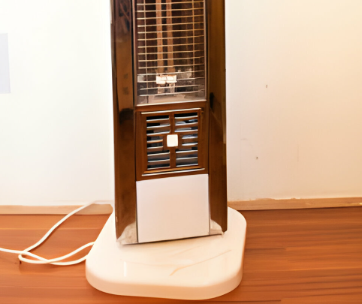
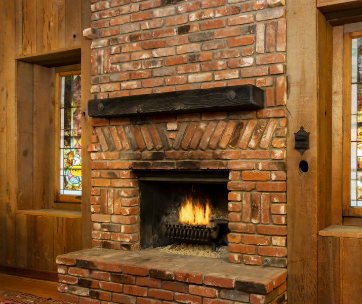
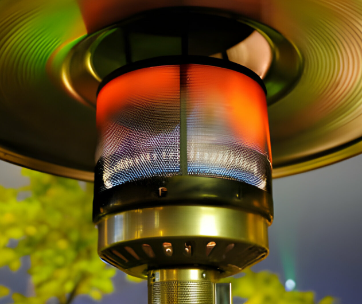
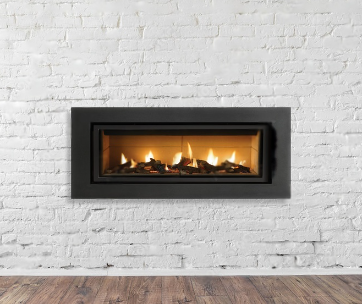

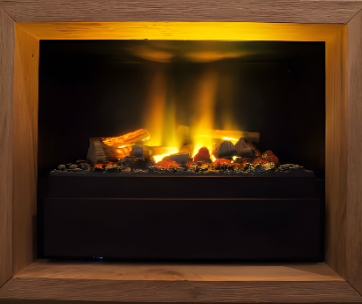



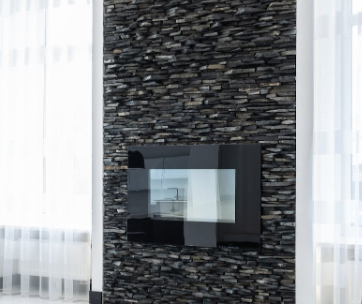
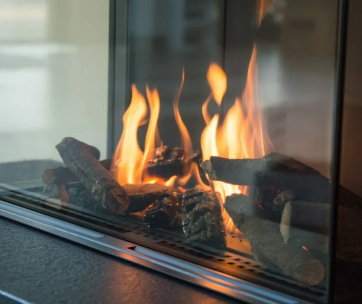
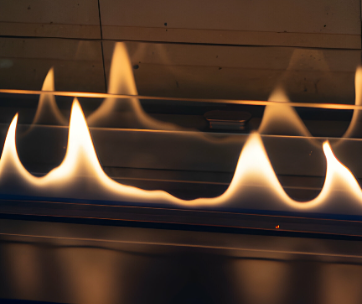
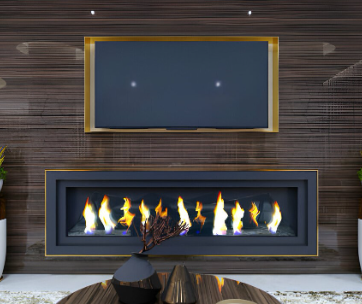
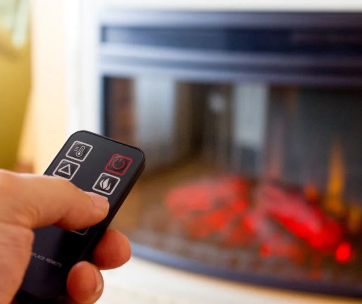




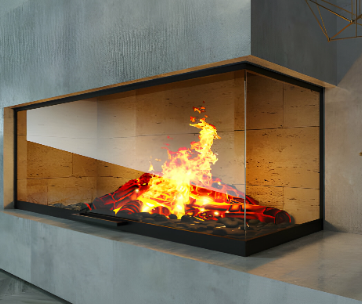

Comments